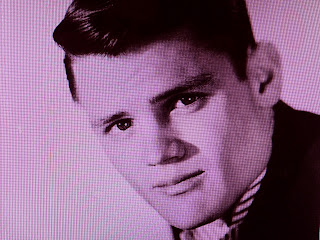 |
| 'The Critic' 1943, Weegee (Arthur Fellig). |
The onlooker appears to be seething with resentment, hatred even, as the saying goes. She's clearly from a different class, and has none of their refinement, her hair's a mess, there's no ermine, no tiara, no jewels. It looks like she's wearing a sheepskin coat. Sadly time has forgotten this woman, and there's no record of her name.
The encounter was in fact a carefully managed, rather cruel and unethical set-up, the photographer got his assistant to go down to Sammy's bar on the Bowery, find some poor soul (in this case who also happened to be very drunk) and take them in a cab uptown in order to get the reaction shot Fellig anticipated and desired.
This image of a confrontation confronts us with our prejudices and gets us to consider where our sympathies lie. But who suffers? Do the poor have a monopoly on suffering, or is suffering as Buddhism suggests a universal phenomena, one of the four Noble Truths? This image is in a way a powerful representation of that most corrosive of human emotions- envy. Haven't we all at some stage felt like the onlooker here, felt that awful feeling where the self seems to writhe, contract and twist, with the only outer movement being one of hatred and resentment.
We tend to dismiss envy quickly without considering what is really going on. When we are envious we may feel like attacking others but significantly it is primarily a form of self-attack. The envious person has the misapprehension that he needs something others have in order to be happy. Fortune is located externally, its something out there, and happiness is thought to be out of reach, we feel excluded. So when we catch ourselves feeling envious it's important to consider what is really happening. It demands a re-evaluation of ourselves. Are we really that impoverished? What is stopping us appreciating ourselves? Do we have to be the needy supplicant?
Envy is a form of self-sabotage and it fits neatly with the shame based aspects of the self-the despised self that feels it is never good enough, the shamed self that may in some way have a compulsive need to feel bad, that paradoxically can't tolerate good self fortune. When we notice envy arising we are almost certainly idealising the other in some form, the other person, the other situation and the bit we are usually less conscious of- denigrating the self. We lose contact with the good that is in the present and instead resort to an 'if only' plea. If only I won the lottery ('it could be you'), if only I had a good-looking boyfriend or girlfriend, if only I was famous, if only, if only. Can you hear the 'if-only' chorus in your life? Of course we live in a culture that thrives on our discontent, envy is in many ways the motor that keeps consumerism going. We are never full, never sated. The envious person wishes their life away chasing an illusory happiness. The envious live a provisional life. The envious person is out of touch with the gifts he already has, he lacks generosity towards the self and he's unable to rejoice in the good fortune of others. Envy is the great spoiler of the good, the rain on the parade.
However resisting envy doesn't mean we need become stoic, we don't have to simply grin and bear it, it is okay to want more for ourselves, to have legitimate aspirations, so long as we realise that getting more doesn't guarantee happiness. As the saying goes be careful of what you wish for.
I also want to say something here about the so-called 'politics of envy'. We all know that envy is unpleasant, which is perhaps why the tired phrase 'politics of envy' gets trotted out so often when anyone challenges inequality of wealth. Political actions they suggest are motivated by envy, and are pathological.
This is a complex topic. Envy calls us back to the self. What do we really need and value? When we make a more accurate assessment we often find what we thought we needed we already have, or is much closer than we realised, and then we can become more expansive and experience more spaciousness; our focus shifts from getting to giving.



